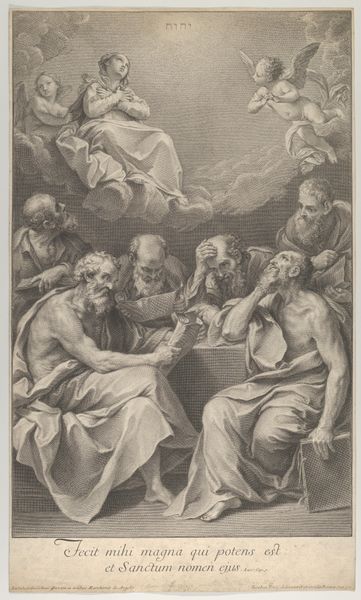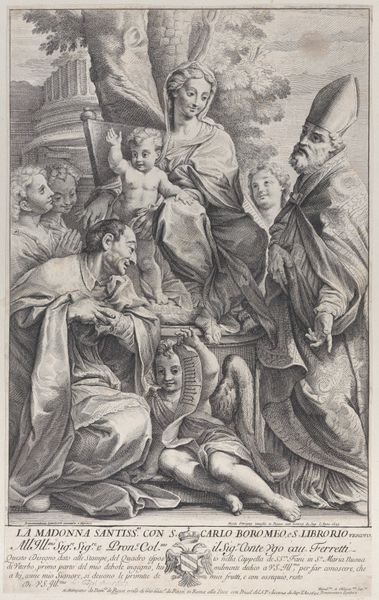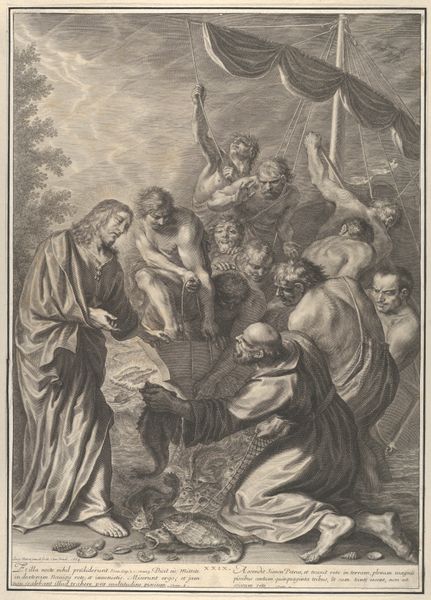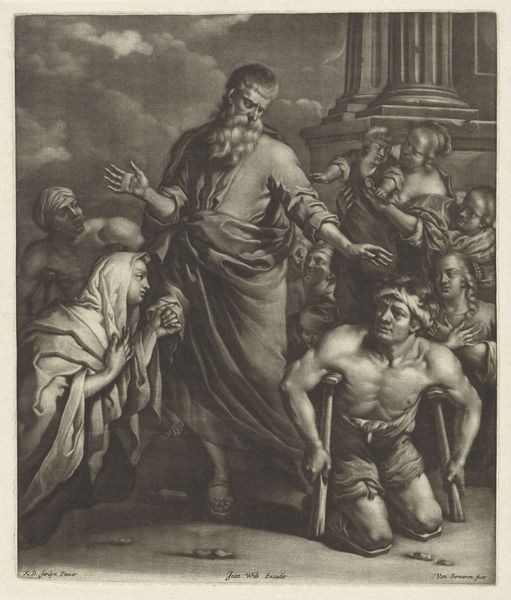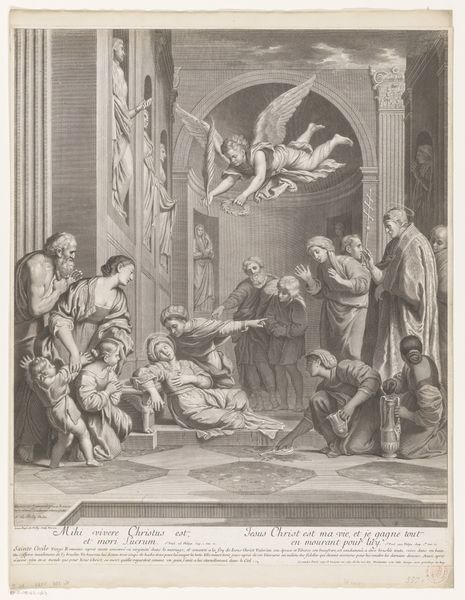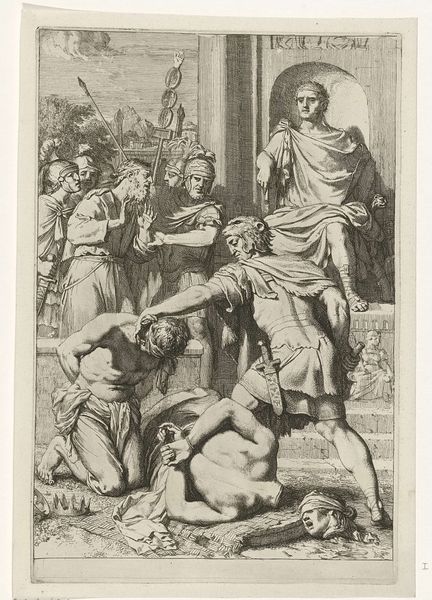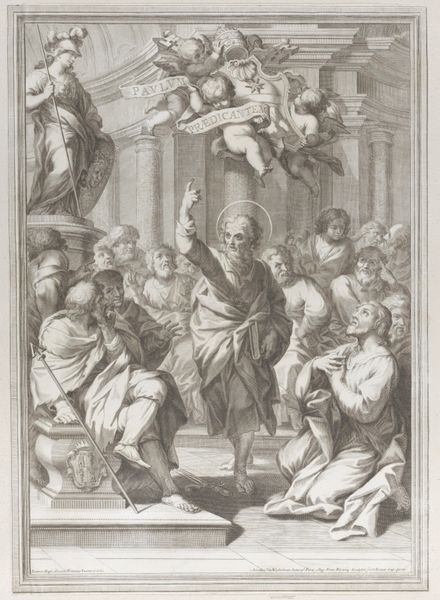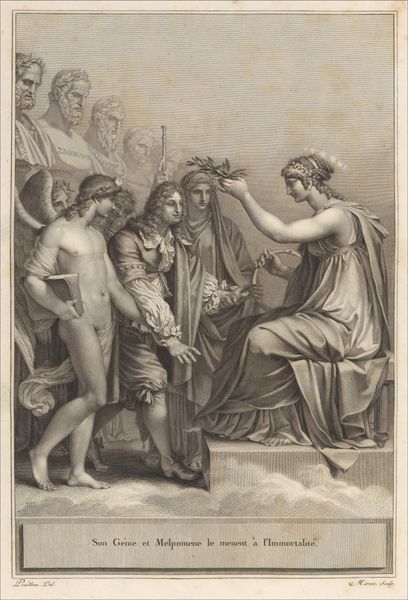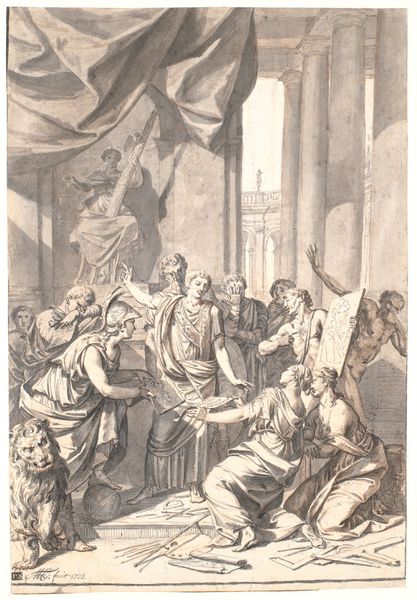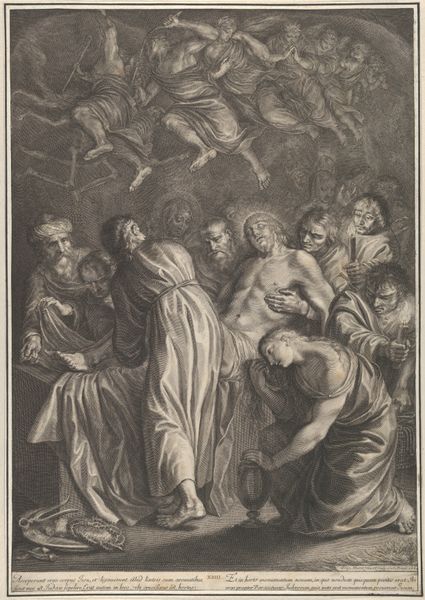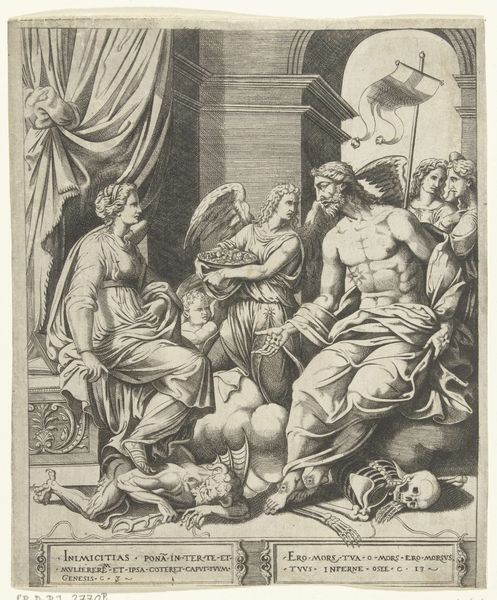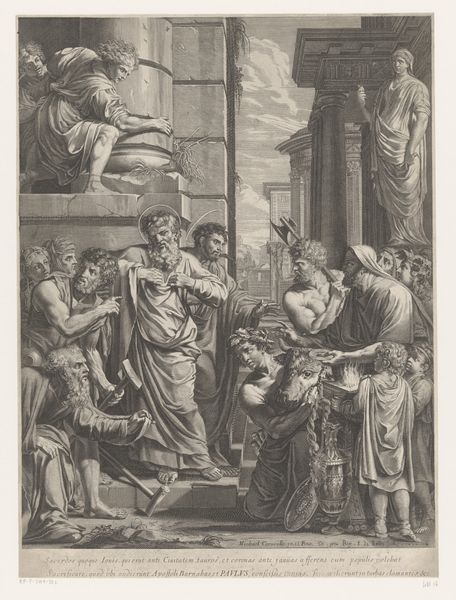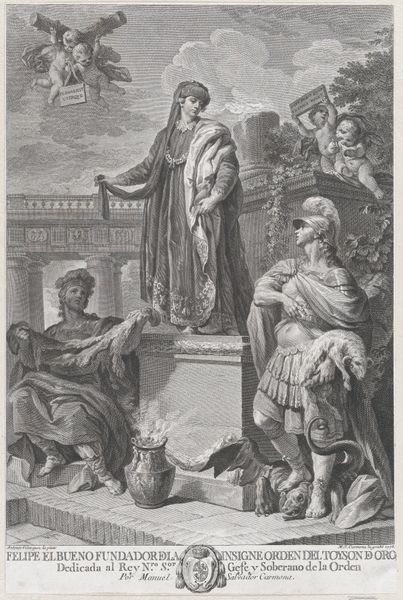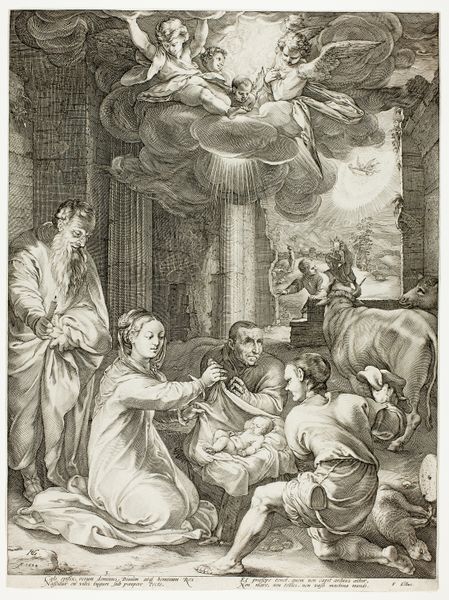
Manius Curius Dentatus Refusing the Presents of the Samnite Ambassadors 1732 - 1792
0:00
0:00
drawing, print, pencil
#
portrait
#
drawing
#
allegory
# print
#
classical-realism
#
charcoal drawing
#
figuration
#
oil painting
#
pencil drawing
#
classicism
#
pencil
#
men
#
genre-painting
#
history-painting
#
academic-art
#
italian-renaissance
#
realism
Dimensions: 9 7/8 x 7 1/2in. (25.1 x 19cm)
Copyright: Public Domain
Curator: This is "Manius Curius Dentatus Refusing the Presents of the Samnite Ambassadors," by Fedele Fischetti, created between 1732 and 1792. The work depicts a historical scene rendered in pencil, charcoal, and wash, giving it a striking tonal quality. Editor: My first impression is stark. It’s austere and quite imposing despite being a drawing. The light and shadow really sculpt the figures, giving them a monumental quality. Curator: The choice of subject matter certainly reflects the burgeoning Neoclassical movement—celebrating Roman virtue and republican ideals. But I am more fascinated about how the drawing acts a form of rhetoric itself; to see how such art can speak volumes about social, political values, the importance of the community and civic duty through visual representation of the past, especially the past of republican Rome, given how class-stratified Fischetti’s 18th century was. Editor: Absolutely. It's not just the theme of incorruptibility, but how it’s visualized that draws me in. Notice how the almost-bare figures are rendered—look at the muscularity and classical forms. Curator: Note how that contrasts the opulent gifts laid at his feet; it speaks to his stoic strength. Think about the visual power of renouncing material wealth; for a society grappling with inequality this carries an inherent critique. This image provides an implicit condemnation of excess. Editor: Precisely! And how this act is materialized, depicted with the stark rendering of each object; even the composition emphasizes a sense of clarity in materials, everything distinct, refusing any suggestion of Baroque excess. It feels as if the material rendering insists on its message as much as Dentatus’ words and deeds do. Curator: Exactly, and it’s that emphasis on civic duty that allows for so many interpretive perspectives; how power should wield its influence, for example. The subject lends itself to countless discussions concerning corruption and public service. Editor: Indeed. It is a stark reminder of how intertwined artistic methods are with cultural messages. Seeing the way in which materials and artistic labor are employed here—there is a conversation that's hard to ignore about value, ethics, and making within any given system. Curator: A profound lens through which to understand not just Fischetti’s piece but any artwork navigating social and political landscapes. Editor: It certainly does that for me and allows a different engagement than simply viewing the work's message.
Comments
No comments
Be the first to comment and join the conversation on the ultimate creative platform.
